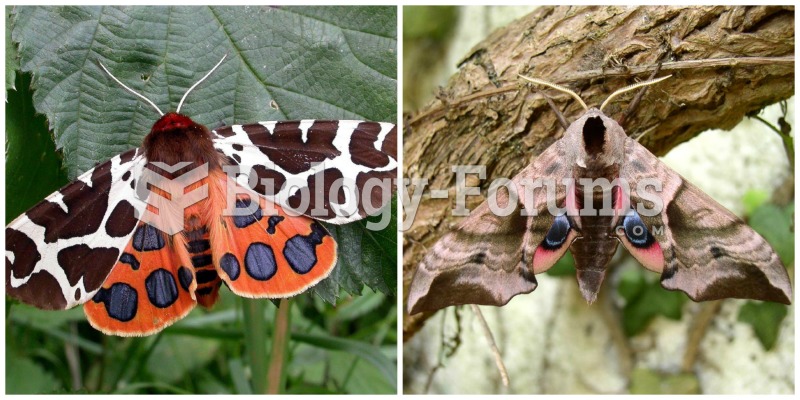This topic contains a solution. Click here to go to the answer
|
|
|
Did you know?
Pubic lice (crabs) are usually spread through sexual contact. You cannot catch them by using a public toilet.
Did you know?
Street names for barbiturates include reds, red devils, yellow jackets, blue heavens, Christmas trees, and rainbows. They are commonly referred to as downers.
Did you know?
The average human gut is home to perhaps 500 to 1,000 different species of bacteria.
Did you know?
A seasonal flu vaccine is the best way to reduce the chances you will get seasonal influenza and spread it to others.
Did you know?
Bacteria have been found alive in a lake buried one half mile under ice in Antarctica.







